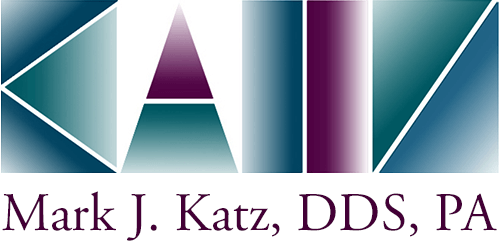Does Sleep Apnea Affect Pregnancy?
Sleep, an essential component of overall well-being, becomes even more critical during pregnancy. As expectant mothers undergo a myriad of physical and hormonal changes, the significance of restful sleep cannot be overstated. However, our Greensboro, NC, sleep dentist knows sleep apnea can cast a shadow over this crucial period, potentially impacting both maternal health and fetal development.
It becomes apparent that addressing sleep apnea during pregnancy is not merely about a good night’s sleep but about safeguarding the health and well-being of both the mother and the unborn child. If you’ve been struggling to stay awake during the day, or you wake up with a throbbing headache, then you should contact our Greensboro office at (336) 364-8988 to schedule an appointment with Dr. Mark Katz.
Signs of Sleep Apnea During Pregnancy
One of the hardest parts about experiencing sleep apnea is that you are unlikely to be the one who notices the symptoms, especially since many of the signs are the same as the usual effects carrying a child has on the body. Most of the time, it’s your partner that notices the symptoms of sleep apnea before you do.
Your partner might report that your snoring wakes them throughout the night and that it sounds like you are suddenly gasping for air. Other signs that you might have sleep apnea include irritability and mood swings, restlessness, and trouble with your memory.


Prevalence and Risk Factors
Sleep apnea is a prevalent concern among pregnant women, and understanding its risk factors is crucial for early identification and intervention. Various factors contribute to the development or exacerbation of sleep apnea during pregnancy, including:
- Increased Weight Gain: Experiencing significant weight gain during pregnancy is a common risk factor for the development of sleep apnea.
- Advanced Maternal Age: Women over the age of 35 face an increased likelihood of sleep apnea during pregnancy.
- High Pre-pregnancy BMI: Elevated Body Mass Index (BMI) before pregnancy is associated with a higher risk of sleep-disordered breathing.
- Hormonal Changes: Fluctuations in hormonal levels, particularly increased progesterone, can lead to muscle relaxation in the throat, potentially contributing to airway obstruction.
- Third Trimester Vulnerability: The physiological changes and weight distribution in the later stages of pregnancy make women more susceptible to sleep apnea, particularly in the third trimester.
Signs of Sleep Apnea During Pregnancy
Identifying the signs of sleep apnea during pregnancy is pivotal for timely intervention, and it’s worth noting that in many cases, partners are the first to observe these symptoms. Keep an eye out for the following indicators:
- Loud Snoring: Persistent, loud snoring, especially if accompanied by gasping or choking sounds during sleep.
- Excessive Daytime Fatigue: Unexplained and excessive daytime fatigue, despite seemingly adequate nighttime sleep.
- Frequent Pauses in Breathing: Observations from a sleep partner noting frequent pauses in breathing during sleep.
- Morning Headaches: Regular headaches upon waking may be indicative of disrupted sleep patterns associated with sleep apnea.
- Difficulty Concentrating: Impaired concentration, memory, or cognitive function may result from inadequate sleep quality.
- Irritability and Mood Changes: Persistent irritability, mood swings, or increased anxiety without apparent cause.
- Frequent Nighttime Bathroom Trips: Excessive trips to the bathroom during the night, potentially related to sleep disruptions.
If an expectant mother experiences one or more of these signs, it is advisable to consult with a healthcare professional for further evaluation and appropriate diagnostic measures.

Impact of Sleep Apnea on Pregnancy
The repercussions of untreated sleep apnea during pregnancy extend beyond mere disruptions to a good night’s sleep. Maternal health is intricately linked to fetal well-being, and sleep apnea can introduce a host of complications for both.
Increased Risk of Hypertension and Preeclampsia
Sleep apnea has been associated with an elevated risk of hypertension and preeclampsia in pregnant individuals. The intermittent pauses in breathing characteristic of sleep apnea can lead to changes in blood pressure, potentially culminating in these serious hypertensive disorders. Given that preeclampsia poses significant risks to both mother and baby, addressing sleep apnea becomes a crucial aspect of prenatal care.
Gestational Diabetes
The relationship between sleep apnea and gestational diabetes is a growing area of concern. Sleep-disordered breathing can contribute to insulin resistance, increasing the likelihood of gestational diabetes. Managing sleep apnea may thus prove instrumental in mitigating the risk of gestational diabetes and its associated complications.
Impact on Overall Maternal Health
Beyond specific conditions, untreated sleep apnea can adversely affect overall maternal health. Chronic sleep deprivation may contribute to increased stress levels, mood disorders, and decreased immune function, amplifying the challenges of pregnancy.
Does Sleep Apnea Affect My Child?
Sleep apnea poses a significant risk during pregnancy, affecting approximately 30 percent of women, according to a study by the National Institute of Health. Despite its prevalence, it remains a dangerous condition for both the expectant mother and the unborn child due to its potential to deprive the body of oxygen.
When the breathing process is interrupted, blood oxygen levels decrease, increasing the risk of high blood pressure, depression, heart failure, obesity, stroke, and even heart attacks. This is particularly concerning during pregnancy as your body is the sole supplier for your baby, meaning that any impact on you directly affects your child.
Some of the adverse effects associated with untreated sleep apnea are as follows:
- Gestational Diabetes — This condition, characterized by elevated blood sugar levels, increases the risk of developing type 2 diabetes later in life.
- Pre-eclampsia — A potentially dangerous complication marked by high blood pressure during pregnancy.
- Fetal Growth Restrictions — A condition where the child does not attain the normal weight expected during pregnancy.
Moreover, sleep apnea can lead to:
- Reduced Oxygen Supply: Intermittent pauses in breathing characteristic of sleep apnea can lead to decreased oxygen supply to both the mother and the fetus. This reduced oxygen availability may impact fetal development.
- Preterm Birth: Sleep apnea has been associated with an increased risk of preterm birth, potentially due to the physiological stress placed on the mother and the developing fetus.
Fortunately, Dr. Katz and our highly-trained staff provide the necessary treatment plans that will increase your chances of having a healthy baby.
Diagnosis and Screening
Diagnosing sleep apnea during pregnancy poses unique challenges due to the dynamic physiological changes expectant mothers undergo. However, early detection is paramount for effective intervention. Several screening tools and diagnostic tests are available, tailored to accommodate the specific circumstances of pregnant individuals.

Challenges in Diagnosing Sleep Apnea During Pregnancy
Identifying sleep apnea during pregnancy is complicated by the overlap of symptoms with normal pregnancy-related changes, such as fatigue and increased snoring. Additionally, traditional sleep studies may need modification to account for the altered sleep patterns and positions common in pregnant women.

Available Screening Tools and Tests
Healthcare providers may utilize questionnaires, such as the Berlin Questionnaire, to assess the risk of sleep apnea. In cases where a higher risk is indicated, further diagnostic measures like home sleep apnea testing or polysomnography may be recommended. These tests enable a comprehensive evaluation of sleep patterns, respiratory events, and oxygen levels.

Importance of Early Detection and Intervention
Early detection of sleep apnea is crucial for implementing timely interventions. By identifying and addressing sleep apnea during pregnancy, healthcare providers can help mitigate the associated risks and enhance the overall well-being of both the mother and the developing fetus.

What Are My Treatment Options?
It’s essential to seek treatment during pregnancy due to the harmful consequences sleep apnea can have on the mother and child. The current industry standard for treating sleep apnea is known as Continuous Positive Airway Pressure (CPAP), but there are alternative options for those who can’t adjust to their CPAP machines.
One helpful tip to help mitigate the adverse effects of sleep apnea during pregnancy is to have the mother sleep on her side. This method of positional therapy will help prevent snoring and will lower the chance of sleep apnea occurring.
Tips for Better Sleep During Pregnancy
Ensuring restful sleep during pregnancy involves adopting practices that address the unique challenges expectant mothers face. Implementing these tips can contribute to improved sleep quality and overall well-being.
- Sleep Hygiene Practices: Establishing a consistent sleep schedule helps regulate the body’s internal clock. You should also create a relaxing bedtime routine to signal to the body that it’s time to wind down.
- Creating a Comfortable Sleep Environment: Sleeping on the left side is often recommended for pregnant individuals. Additionally, using pregnancy pillows for support can enhance comfort. You should also maintain a cool, dark, and quiet sleep environment to promote uninterrupted rest.
- Addressing Common Sleep Disruptions: Practice relaxation techniques, such as deep breathing or prenatal yoga, to alleviate stress and anxiety. While reducing fluid intake before bedtime can minimize nighttime bathroom trips, staying adequately hydrated during the day is essential for overall health.

Frequently Asked Questions
Will my sleep apnea symptoms go away after my pregnancy?
How common is sleep apnea during pregnancy?
Can other conditions predispose me to developing sleep apnea during pregnancy?
- Preeclampsia or high blood pressure
- Obesity
- Diabetes, including gestational diabetes
- Deviated septum or other breathing issues
Can lifestyle changes alone alleviate sleep apnea during pregnancy?
Help Your Child Start Strong
Sleep apnea is a serious condition that needs the proper diagnosis and treatment. If you want to learn more about snoring and sleep apnea treatments that are appropriate during pregnancy, please call 336-346-8988 to schedule an appointment with our sleep dentist, Dr. Mark Katz in Greensboro, NC.
You can also fill out our online contact form to schedule a consultation today. Dr. Katz treats patients in Greensboro and surrounding areas such as Winston-Salem, Whitsett, Summerfield, and Kernersville, NC.
